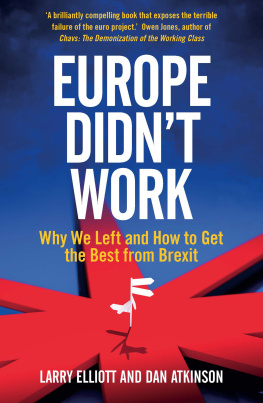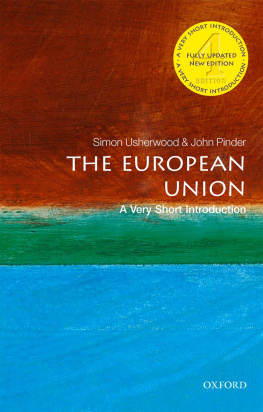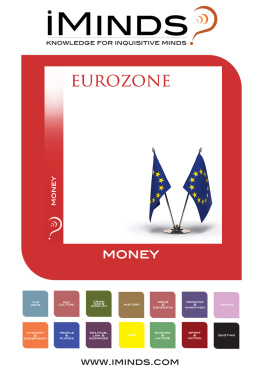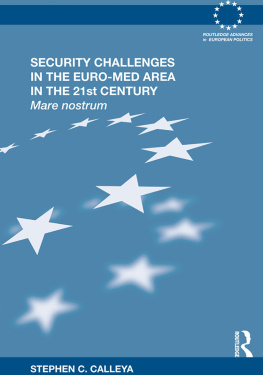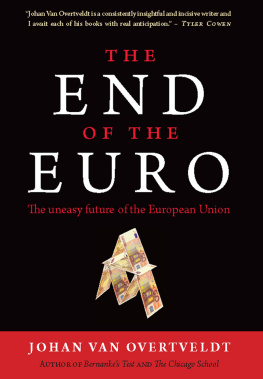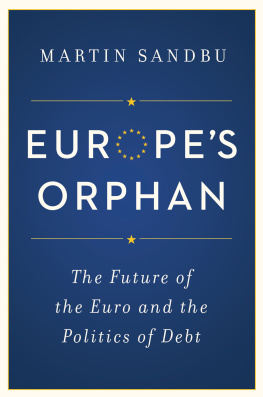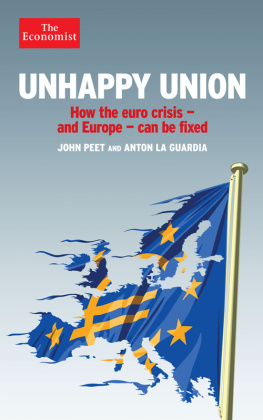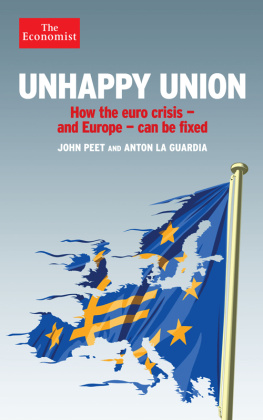EUROPE DIDNT WORK
Larry Elliott is economics editor at the Guardian. Dan Atkinson is an independent financial journalist and writer. This is the fifth book they have collaborated on, following The Age of Insecurity, Fantasy Island, The Gods That Failed and Going South.
Further praise for the hardback edition:
This book is a must-read for anyone who cares about the future of Europe and progressive politics. Larry Elliott and Dan Atkinson correctly predicted the euro would prove a calamity. They are right today that the euro crisis is far from over. Their demand for a radical change of approach must be taken seriously by policymakers and politicians alike.
Ed Balls, UK Shadow Chancellor from 2011 to 2015
Elliott and Atkinson have done it again. This is a brilliantly written and powerfully argued attack on the euro project. They can justly claim to have been members of the Few who foresaw the disaster that the euro would turn out to be. Now they are part of the even smaller number who recognize that the euro needs to break up.
Roger Bootle, chairman of Capital Economics and author of The Trouble with Europe
This important, readable book encapsulates why the euro was created and has failed so miserably. Elliott and Atkinson have been among the few who have foreseen and reported on the problems along the way, and here the reader is given insights from the centre of European policymaking and the heart of British politics. We are told they have been planning to write this book for thirty years. It has been well worth the wait.
Dr Gerard Lyons, chief economic adviser to Boris Johnson

Page 29, Rat Trap, written by Bob Geldof, lyrics reproduced by kind permission of Mute Song Limited. Page 115, Dennis ODriscoll, The Celtic Tiger, Weather Permitting, Carcanet Press Ltd, 1999, is used with permission.
Copyright 2016 Larry Elliott and Dan Atkinson
First published in paperback in 2017
All rights reserved. This book may not be reproduced in whole or in part, in any form (beyond that copying permitted by Sections 107 and 108 of the U.S. Copyright Law and except by reviewers for the public press) without written permission from the publishers.
For information about this and other Yale University Press publications, please contact:
U.S. Office:
Europe Office:
Typeset in Minion Pro by IDSUK (DataConnection) Ltd
Printed in Great Britain by Hobbs the Printers, Totton, Hampshire
Library of Congress Control Number: 2017948022
ISBN 978-0-300-22879-3
A catalogue record for this book is available from the British Library.
10 9 8 7 6 5 4 3 2 1
CONTENTS
PREFACE
Actors have parts they secretly want to play. Rock musicians have records that for some reason remain unmade. Authors have ideas that gnaw away at them but take years to find their way onto the page. Our equivalent is this book.
It is the fifth we have jointly written since 1998, but it is the one we have always wanted to write since we first worked together as reporters at the Press Association in 1986. It was a different world back then: filing copy on typewriters rather than computers (the latter still, then, a few months in the future); financial news from the rest of the world arriving by means of wire machines; reporters needing to find a public telephone box to speak to the news desk.
Europe, too, looked different three decades ago. Berlin was still a divided city in a disunited Germany; attempts to create a single European market were just underway; the notion of a single currency was in its infancy. There were twelve members of the European Community against the twenty-eight members of todays European Union.
On the surface, the issue of Europe had been off the boil in the UK for some time. The country had voted eleven years earlier to remain a member and had declined the offer of withdrawal (this time without a referendum) from Michael Foots Labour Party in the 1983 election. The big issue on the continent in the first half of the 1980s had been defence, specifically nuclear confrontation with the Soviet bloc, a matter in which the European Community had no real standing.
But beneath the surface, British attitudes towards Europe were in a state of flux. Under Margaret Thatcher, the Conservative Party, which had traditionally been the more pro-European of the UKs two main parties, was becoming sceptical. The Labour Party, until then more cautious about the benefits of closer ties with the European Economic Community, was moving in the other direction.
In reality, both parties were split over Europe. The Conservatives had enthusiasts such as Michael Heseltine and Kenneth Clarke. Nigel Lawson, who has been prominent in the recent campaign for Britain to leave the European Union, was then, as chancellor of the exchequer, prepared to peg the value of the pound to that of the West German mark in the hope that it would help to control inflation.
The Labour leader Neil Kinnock was warming to the idea of Europe, as were a number of prominent trade union general secretaries. But many on the left remained suspicious, either because of what they saw as an inbuilt bias towards deflationary economic policies, or because they thought creating a single European economic space complete with its own money and its own central bank offered more to the owners of multinational corporations than to the people who worked for them.
Then, as now, we were in the second camp. We were with the Bryan Goulds, the Peter Shores, the Tony Benns and the Jeremy Corbyns, who doubted whether the claims made for ever closer integration were all they cracked up to be. We were working together on the Guardian by the time Britain formally tied itself to the German mark in 1990 through the Exchange Rate Mechanism (ERM), and were pretty much alone in thinking it a rotten idea. Similarly, when the rest of the papers staff saw departure from the ERM as a day of disaster, we saw Black Wednesday as a moment of liberation.
It was curious to us that, in Britain, most of the running against the Maastricht Treaty that paved the way for the single currency was made by Conservative Eurosceptics.
When we came to write our first book together in 1998, the birth of the single currency was little more than a year away. In retrospect, it might have been better had we written The Euro Wont Work rather than The Age of Insecurity, in which we devoted a chapter of the book to the problems we foresaw for monetary union.
Still, better late than never. There are those on the left who feel uneasy about voicing their concerns about the euro, in the main because of the political company they have to keep. This book explains why those misgivings are unnecessary. The single currency was not, is not, and never will be a progressive project.
Over the following ten chapters, we trace the origins of monetary union to the gold standard, track its development during the design stage in the late 1980s and 1990s, and then compare the euro in theory against the euro in practice. Some commentators have been surprised by the failure of the single currency to live up to its advanced billing. We are not. We always thought it would end this way.
For this paperback edition, we have written an epilogue that encompasses the seismic events that have occurred since the first edition went to press in May 2016. The most obvious is the 23 June vote in Britain to leave the EU. Then there was the defeat of the Italian government in a referendum later in the year, and tightly fought electoral contests in the Netherlands, France and parts of Germany.
Next page
